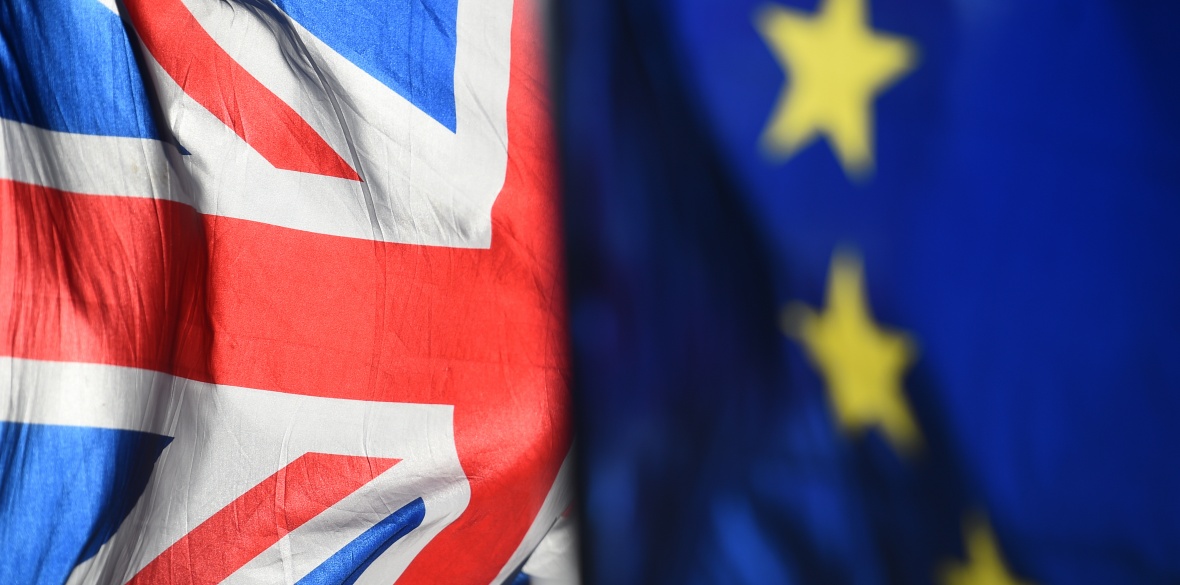Voices of ScotlandThe only way that we can respect democracy is to exit the EU
The struggle to defend, develop and advance our democratic rights now is key to the long-term struggle for socialism, says JOHNNIE HUNTER
DEMOCRACY is among the highest virtues of human society. It is little surprise then that various sides in the Brexit debate in Scotland have sought to ground their arguments in “respect for democracy” and “respect for the will of the people.”
On the one hand those who advocate exiting the European Union argue that the result of the 2016 referendum must be respected by delivering Brexit.
In opposition, last weekend also witnessed the escalation of a campaign to frustrate the referendum result, the so-called People’s Vote campaign.
This campaign has sought to surreptitiously masquerade as a fight for democracy.
Scotland has also seen arguments, principally voiced by the SNP and its hangers-on, that there should be a second independence referendum.
The fact is that the only result which can truly deliver a democratic outcome — both in respect of the 2016 referendum and for Scotland’s future — is a People’s Brexit.
While democracy under capitalism is deeply corrupted and flawed, it is a key political and ideological battleground.
The struggle to defend, develop and advance our democratic rights now is key to the long-term struggle for socialism.
The Brexit referendum result was the biggest democratic expression of the peoples of Britain to date. The corrupting actions of mainstream politicians or the media do not vitiate this.
Against this backdrop we can readily identify why both the People’s Vote and a second independence referendum would represent an anti-democratic turn for the people of Scotland.
Remainers regularly question how a second referendum could possibly be undemocratic. Surely another vote on equivalent terms to the first would simply be a further democratic expression of the same significance and validity?
This position totally ignores the historical use and abuse of the referendum process by the European Union. Where a referendum produces a problematic result for the neoliberal bloc it will employ one of two options: rerun the vote or ignore it.
The tactic of rerunning referendums which produce an anti-EU result is longstanding.
In 1992 Denmark rejected the Maastricht Treaty in a referendum. The Maastricht Treaty, which required ratification in all member states, greatly increased the powers of the EU and laid the basis for the euro currency.
The Danish referendum was rerun in 1993 producing a pro-Maastricht result.
In 2001 Ireland rejected the Nice Treaty, which increased EU powers and prepared for eastward expansion. The 2002 Irish referendum produced the “right result.”
It would be Ireland’s turn to rerun its vote again in 2009 after rejecting the Lisbon Treaty the previous year. The Lisbon Treaty itself represented the biggest anti-democratic trick by the EU in circumventing referendum results in both France and the Netherlands.
The 2005 European Constitution had been rejected by voters in both France and the Netherlands. Further referendums were abandoned.
The Constitution was repackaged as the Lisbon Treaty which required a referendum only in Ireland as a result of that country’s constitution. Dutch and French voters, and voters in every other EU country, were not given a say.
The tactic of the EU bureaucracy and compliant governments across Europe is well established. If at first you don’t succeed: frustrate the alternative, pour resources into pro-EU campaigns, demoralise the electorate and rerun the vote. To date it has been entirely effective.
The matter of a second independence referendum is simple. The Scottish people have a right to national self-determination.
Should the people democratically opt to, we may assert ourselves as an independent nation.
In the 2014 referendum the Scottish people chose to remain part of Britain. In a democratic polity certain areas often vote differently to the ultimate outcome. Does that call into question the whole basis of that polity?
It does not. The Scottish people did not vote to remain part of Britain on this proviso. We voted to remain part of a greater polity which may from time to time vote differently and to accept that result.
So will the Scottish people and the peoples of Britain allow democracy to be subverted in 2019? The choice lies with us.
Intimidating and sowing disinformation then forcing a rerun of a vote in short order does not constitute a democratic expression. We wouldn’t accept it in a council election. Why should it be accepted on the international stage?
The only way that we can respect democracy is to exit the EU. This should be done on the most favourable terms to working people.
The risk of failing to do so is significant. The Brexit vote directly resulted in the collapse of support for Ukip and elements of the far right.
A Brexit reversal could result in them garnering new and increased support.
Looking to the future, a full Brexit offers the chance to massively enhance the democratic rights of the Scottish people.
Brexit would transfer decision-making powers in 64 areas of policy from the EU and its Commission to the Scottish Parliament. These areas include state aid to industry, public-sector procurement, rail franchises, equalities and the environment.
We would have the opportunity to rebuild Scotland and Britain free from the neoliberal constraints and diktat of the EU Commission.
This will all be subject to winning the struggle and battles of ideas here. That struggle starts now with the fight for a democratic Brexit result.
We cannot allow Brexit to be another EU rerun. Democracy and national sovereignty must begin to triumph after years in Brussels’ cold shadow.
Johnnie Hunter is Young Communist League general secretary.


Aucun commentaire:
Enregistrer un commentaire